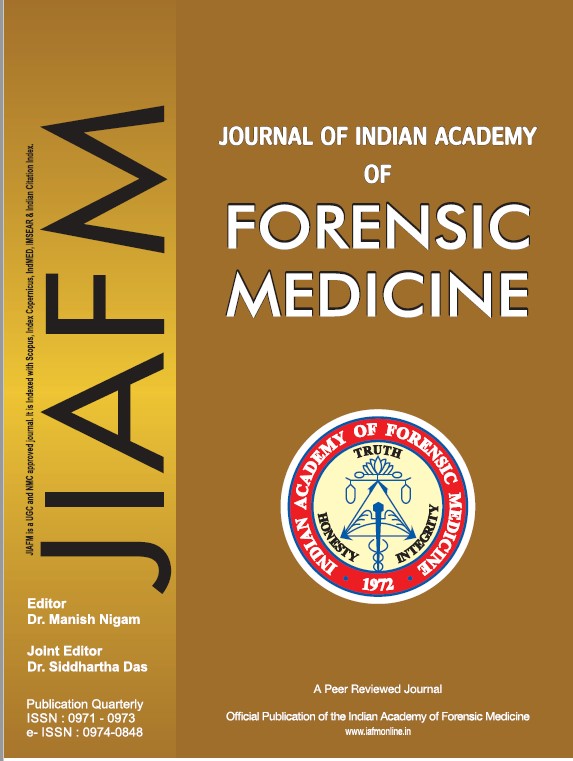Patient Autonomy and Informed Consent: The Core of Modern Day Ethical Medical
DOI:
https://doi.org/10.48165/Keywords:
Principle of Autonomy, Informed Consent, Ethical Medical Practice, Patient AutonomyAbstract
The UN Charter of Human Rights says: ―All human beings are born free and equal in dignity and rights. They are endowed with reason and conscience and should act towards one another in a spirit of brotherhood.‖ In the words of Judge Cardozo, ―Every human being of adult years and sound mind has a right to determine what shall be done with his own body; a surgeon who performs an operation without his patient‘s consent commits an assault, for which he is liable‖. This in complete contradiction to the Hippocratic Oath, which is the Oath taken by most medical graduates in the world. The most important principle for modern medical ethics is respect for patient autonomy, informed consent and patient confidentiality. The goal of informed consent is to respect patient autonomy and enable him to make decisions regarding his medical care, of his free will, without coercion, after understanding fully what he is consenting for. The Principle of Autonomy, its implications on informed consent and patient care situations will be dealt with in this paper.
Downloads
References
Available at: digitalcommons.law.yale.edu/cgi/view content. Informed Consent – Must It Remain a Fairy Tale? Accessed 10th November 2013.
Universal Declaration of Human Rights. Available at: http://watchlist.org/wordpress/wp-content/uploads/Universal declaration-of-human-rights.pdf. Accessed on 10th November 2013
1914, 211 N.Y.R. 125, quoted by Rudra A, Dogra TD. Eds. Lyon‟s Medical Jurisprudence and Toxicology. 11th Ed. Delhi Law House. pp 182.
Beauchamp TL, Childress JF. Principles of biomedical ethics. 5th Ed, New York, NY: Oxford Press; 2001.
Lawrence DJ. The four principles of biomedical ethics: a foundation for current bioethical debate. J. Chirpr Humanit 2007; 14: 34-40. 6. Feinberg J. Harm to self. In: The moral limits of criminal law. New York, NY: Oxford Univ. Press; 1986.
The Indian Penal Code, 1860. Act 45 of 1860. Available at: http://police.mizoram.gov.in/uploads/files/indian-penal-code 1860.pdf. Accessed on 15th November 2013.
Zenbaty J.S. A limited defense of paternalism in medicine .In: MappesTA, Zenbaty JS (eds.: Biomedical ethics. New York, NY, Mc Grow-Hill Inc, 1981:57.
Purtilo RB. Applying the principles of informed consent to patient care: legal and ethical considerations for physical therapy. Phys. Ther. 1984; 64: 934-37.
Coy JA. Autonomy-based informed consent: ethical implications for patient noncompliance. Phys. Ther 1989; 69 (10):826-33. 11. Newton L. A framework for responsible medicine. J Med Philos.1979; 4(1):57-69. As quoted by Coy JA at 10, above. 12. Janine Harnish vs. Children's Hospital Medical Center & others. 387 Mass 152,429 N.E. 240. 1982. Available at: http://masscases.com/cases/sjc/387/387mass152.html. Accessed 15th November 2013.
Oath of Initiation (Charaka Samhita). [First Century AD?] Available at:http://www.bioethics.org.au/Resources/Codes%20and%20Oaths/ Oath%20of%20Initiation,%20Caraka%20Samhita.pdf. Accessed on15th November 2013.
The Right to Information Act, 2005. (Act 22 of 2005). Available at: http://rti.gov.in/rti-act.pdf. Accessed on 15th November 2013. 15. The Indian Contract Act, 1872. Act 9 of 1872. Available at: http://vakilno1.com/bareacts/indiancontract act.pdf. Accessed 20th November 2013.


